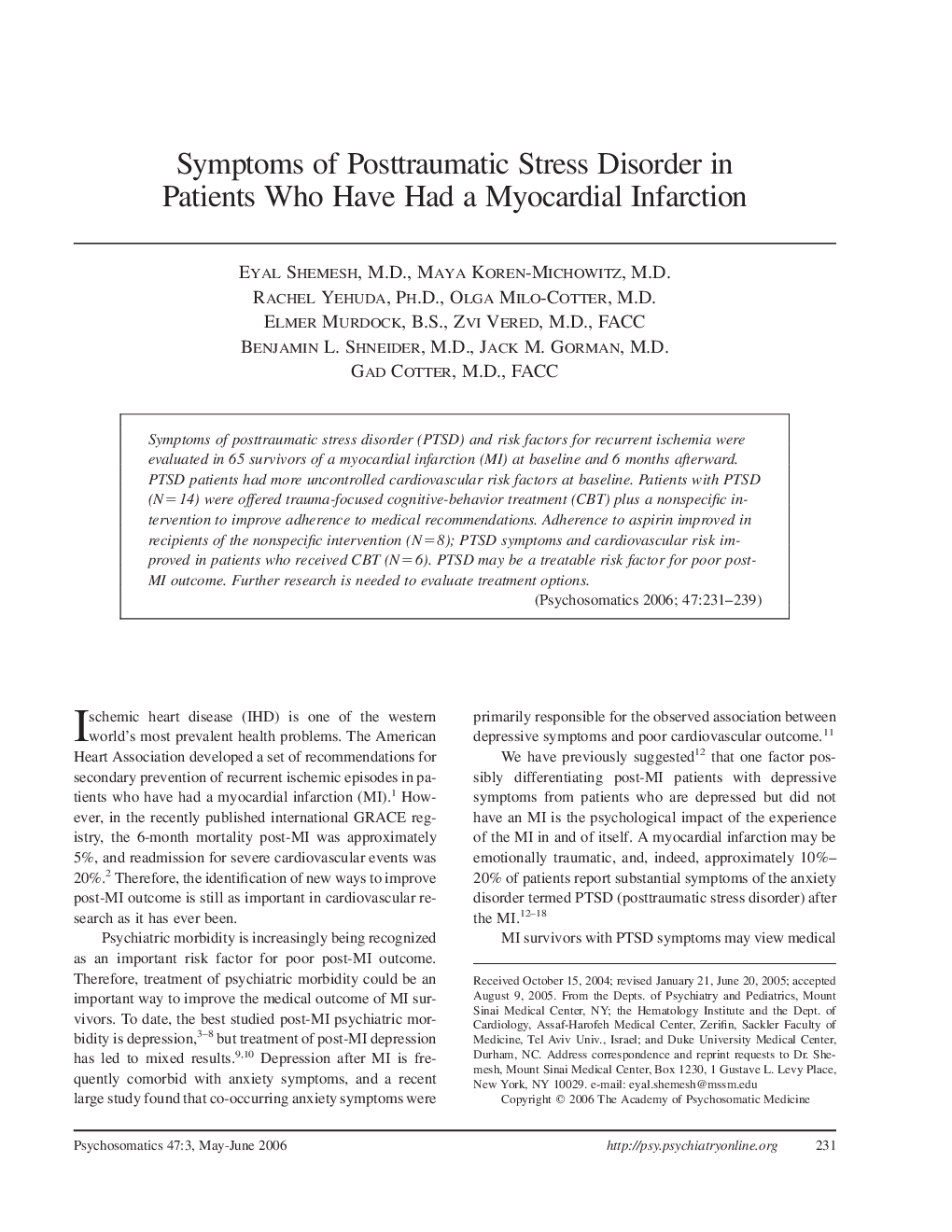| Article ID | Journal | Published Year | Pages | File Type |
|---|---|---|---|---|
| 338827 | Psychosomatics | 2006 | 9 Pages |
Abstract
Symptoms of posttraumatic stress disorder (PTSD) and risk factors for recurrent ischemia were evaluated in 65 survivors of a myocardial infarction (MI) at baseline and 6 months afterward. PTSD patients had more uncontrolled cardiovascular risk factors at baseline. Patients with PTSD (N = 14) were offered trauma-focused cognitive-behavior treatment (CBT) plus a nonspecific intervention to improve adherence to medical recommendations. Adherence to aspirin improved in recipients of the nonspecific intervention (N = 8); PTSD symptoms and cardiovascular risk improved in patients who received CBT (N = 6). PTSD may be a treatable risk factor for poor post-MI outcome. Further research is needed to evaluate treatment options.
Related Topics
Health Sciences
Medicine and Dentistry
Psychiatry and Mental Health
Authors
Eyal Shemesh, Maya Koren-Michowitz, Rachel Yehuda, Olga Milo-Cotter, Elmer Murdock, Zvi Vered, Benjamin L. Shneider, Jack M. Gorman, Gad Cotter,
